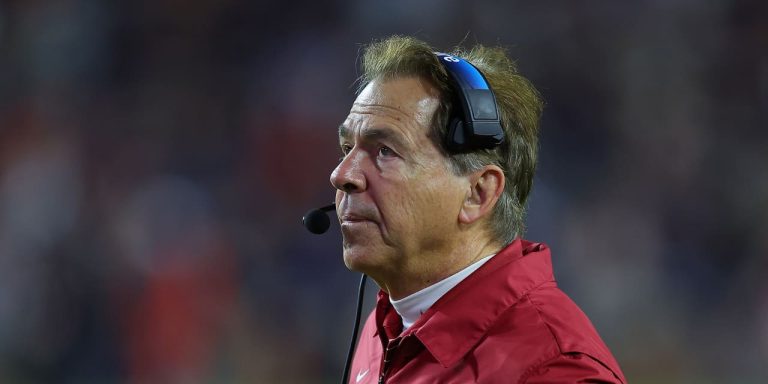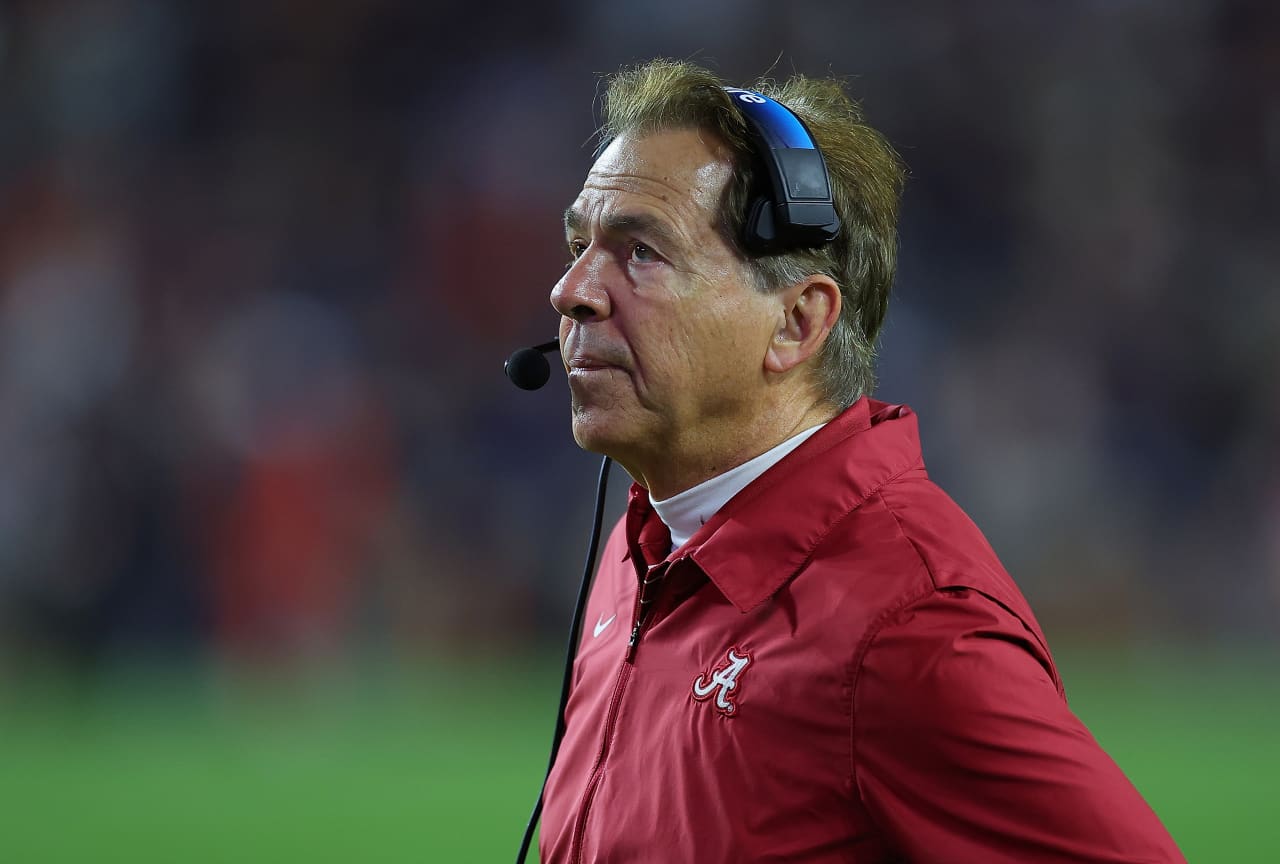Legendary Alabama football coach Nick Saban suddenly retired Wednesday, with six years and $71.8 million remaining on his contract.
Saban, 72, is leaving the Crimson Tide program that has won the most national titles in college football history and is consistently among the top four teams in the country.
Shortly after Saban announced his retirement, some who know him came forward to say recent changes in college sports, such as the ability for players to make money off their names, images and likenesses — known as NIL — and more relaxed student-athlete transfer rules could lie behind the decision.
AJ McCarron, who was Alabama's quarterback under Saban a decade ago, suggested that Saban was tired of the new college sports landscape.
Deion Sanders, the University of Colorado football coach, theorized that changes in the collegiate game had “knocked out” Saban, whom he described as the greatest coach of all time.
Micah Parsons, an NFL All-Pro linebacker with the Dallas Cowboys who played collegiately at Penn State in 2018-19, posted that he also believes the NIL played a role in Saban's sudden retirement.
The NCAA began allowing college athletes to earn name, image and likeness money in 2021, after decades of student-athletes saying it was unfair that they didn't get any money when the games they played made millions of dollars — especially football. And basketball games.
Saban has publicly stated on several occasions that he supports college players receiving compensation, but he is not a fan of the current system that rewards the schools with the best recruits simply by paying the most money in a nothing deal.
Earlier this season, Saban, in a now-famous press conference, asked: “Is this what we want college football to be?”
See also: These 10 athletes earn more than $1 million annually from the NIL
While it's true that Saban has had incredible success in different eras, including the BCS system, the College Football Playoff and now the new NIL era, some experts believe the latest changes are creating new challenges for coaches.
“The changing landscape definitely makes it more difficult,” Michael Rueda, corporate partner and head of the US Sports & Entertainment practice at international law firm Withers, told MarketWatch. “It represents a factor that wasn't there before.”
College coaches no longer have to consider only how recruits will fit on the field and in the classroom, but also whether the school meets the NIL requirements that some student-athletes have.
“Most coaches are coaches because they want to create an environment for students to be successful whether on the field or after college,” Rueda said. “With nothing and some subsequent developments, the question became, ‘How will I facilitate bringing more dollars into my program and to my student-athletes?’”
“When you walk in and start talking to these younger kids, and you're trying to recruit them, the first thing they ask is, 'What are the odds I don't have something?'” Lisa Delpy Niruti, a sports management professor at George Washington University, told MarketWatch. “So, not only does he have to promote his value as a coach, he will now be concerned about how much money they are going to have to pay those kids on the bench.”
Niruti added that in addition to recruiting high school students to their colleges, lucrative nothing opportunities can also lead to students transferring schools, something that happens more often as transfer penalties ease in college sports.
See also: Who owns the Tiger Woods 'TW' logo now that he's left Nike?
Publicly, Saban has said his retirement is not specifically related to the changing landscape of college football, whether it be nothing or an increasingly active transfer portal, but he has reiterated that he and his fellow coaches are not satisfied with the current system.
“For me, if you choose to coach, you don't need to complain about all that stuff,” Saban told ESPN. “You need to adapt to it and adjust to it and do the best you can under the circumstances and not complain about it. Right now, I think everyone is frustrated about it. We had a conference call with the SEC, and there were 14 coaches there.” [Wednesday]And there's not a single person you can talk to that really understands what's going on in college football and thinks that's not a problem.
Saban led the Crimson Tide to nine Southeastern Conference championships and won his first national title at Alabama with a 14-0 record in 2009. He also won championships in 2011, 2012, 2015, 2017 and 2020, along with a previous national title with Louisiana. State University in 2003.


